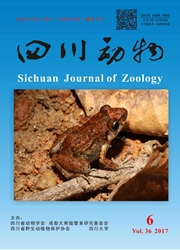

 中文摘要:
中文摘要:
四倍体胚胎的制备已经成为生物学家研究小鼠以及其它哺乳动物发育生物学的有力工具。目前,制备小鼠四倍体胚胎最常用的方法是电融合法,其中电融合液中的离了种类和离子浓度是影响胚胎电融合成败的关键因素。本文比较了Ca^2+、Mg^2+、Sr^+、Na^+、K^+、Li^+等阳离子对小鼠2-细胞胚胎电融合的影响。结果发现,在100V/mm电场强度、50μsec脉冲时程和2次脉冲的电融合条件下,少量二价阳离子的存在是胚胎融合所必须的,当Ca^2+为0.1mM时,可使全部胚胎发生电融合,而一价阳离子的存在不利于胚胎的电融合。随着各种离子浓度的大幅升高,胚胎的融合率急剧下降、胚胎死亡数量增加以及死亡程度加剧。
 英文摘要:
英文摘要:
The production of tetraploid embryos has become a useful tool for mouse developmental biologists-within the past decade and is increasingly being used in other mammalian systems. Most notably, tetraploid embryos are commonly used to rescue embryonic lethality as a result of defective extraembryonic phenotypes in laboratory mouse strains, as well as a method of generating mice directly from embryonic stem ceils. Currently, the most commonly used method of producing mouse tetraploid embryos is electrofusion by electrical stimulation. Several factors influence the efficiency of the electrofusion. In addition to the alignment of the embryos with respect to the electric field and electric field strength, the other key factor is the concentration of cation in pulsing medium. The efficiency of 6 kinds of cation on mouse 2-cell embryo electrifuston were studied in the present paper, two square DC pulses of 100V/mm and duration of 50μsec were applied when electrical stimulation. The results showed that divalent cations were necessary to achieve embryo electrofusion, and univalent cations were an inhibitor affecting the embryo electrofusion. The deereated electrofusion rate and the increased death rate of 2-cell embryos were obseved when the concentration of each cation was evidently raised.
 同期刊论文项目
同期刊论文项目
 同项目期刊论文
同项目期刊论文
 期刊信息
期刊信息
